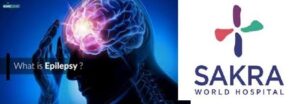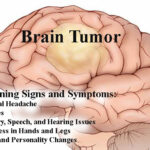Doctors at Sakra World Hospital treat a 45-yr-old woman suffering from Uncontrollable Epilepsy. Most cases of Epilepsy can be treated with anti-epileptic drugs.


At Sakra World Hospital, Lakshmi consulted Dr Satish Rudrappa, Director – Neurosciences and Dr Shiva Kumar R – Epileptologist. Upon investigation, she was diagnosed with right Mesial Temporal Sclerosis (MTS) and a small Right Frontal benign brain tumor. To decipher the exact cause of her recurrent seizure, series of Video EEG, MRI and PET scans were taken to localize the origin of seizures as the right temporal lobe (Temporal Lobe Epilepsy).
Also Read: SIGNS OF BRAIN TUMOR YOU SHOULD KNOW
What is Mesial Temporal Sclerosis (MTS) ?
MTS is sclerosis of the deepest portion of the temporal lobe similar to the scarring of any tissue in the body which gives rise to seizures. It requires experience and expertise to identify such types of unique seizures called Temporal Lobe Epilepsy. In Lakshmi’s case otherwise, the illness would have been easily attributed to a small meningioma growing in her brain which is very benign and not the cause for the seizures.
“At Sakra, we receive more than 600 epilepsy patients every year. Out of which 150 of them are termed as “refractory epilepsy”. About 50 patients of these refractory Epilepsies’ turned out to be surgically remediable epilepsies. In Lakshmi’s case, the development of MTS could be due to the early seizures she suffered during her childhood which were not addressed or monitored during the early phase leading to scarring,” said Epilepsy specialist Dr Shiva Kumar.
Most cases of Epilepsy can be treated:


Most cases of Epilepsy can be treated with anti-epileptic drugs, however, Mesial Temporal Sclerosis (MTS) also known as surgically remediable Epilepsy is amenable for surgery to achieve the cure. Speaking about the surgery, Dr Satish said, “Lakshmi underwent Amygdalohippocampectomy and Anterior temporal lobectomy. Surgery, if not performed with precision carry significant risk and is only considered for patients when other treatment methods fail. Surgery requires expertise & impeccable surgical precision to correctly resect only the affected region. Intraoperative monitoring of surgical borders to be free of seizure activities is very essential to carefully resect out the sclerosed region and its connections.”
“Surgeries for MTS has a 95 to 98 percent success rate especially when there is good coordination between patient, Epileptoligist & Epilepsy surgeon” added Dr Satish Rudrappa. Dr Shiva Kumar further says that, “Post the surgery within a day, Lakshmi was back on her feet and in a years’ follow up, all her medications were stopped and leading a seizure-free life. In addition to surgery, regular follow up and slow, monitored tapering of medication (depending on EEG results) before stopping altogether is essential.”
Also Read: WHY THERE IS AN INCREASE IN EPILEPSY IN BENGALURU?











